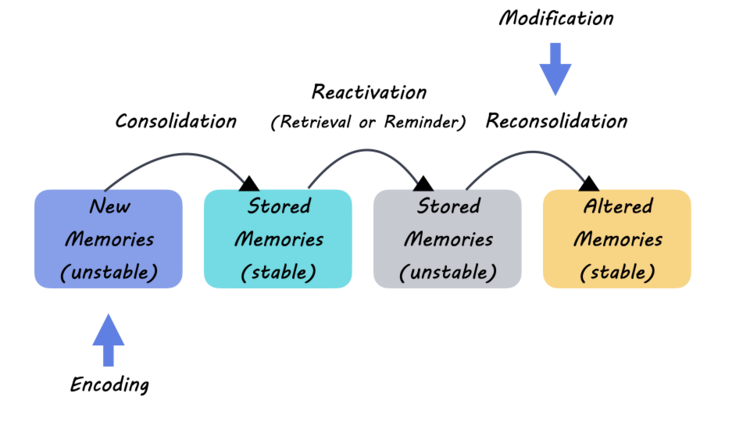AI brain cancer prediction stands at the forefront of innovative medical research, especially in its application to pediatric gliomas. A recent study from Harvard reveals that AI tools can significantly outperform conventional methods in predicting cancer recurrence, particularly for children battling brain tumors. By harnessing advanced MRI analysis and an innovative technique called temporal learning in AI, researchers have developed a model that processes multiple brain scans over time. This pioneering approach aims not only to enhance early cancer detection but also to reduce the emotional burden of frequent imaging on young patients and their families. As we delve deeper into the implications of AI in oncology, it becomes clear that the future of brain cancer management for children lies in these cutting-edge predictive technologies.
The use of artificial intelligence in predicting brain cancer relapse introduces a revolutionary era in pediatric oncology. Researchers are increasingly leveraging machine learning algorithms to analyze data from magnetic resonance imaging (MRI) scans, specifically focusing on conditions like pediatric gliomas. By implementing advanced analytical techniques, these tools improve the ability to forecast potential cancer recurrence, offering hope for more effective treatment strategies. Moreover, this method emphasizes the importance of continuous monitoring through multiple imaging sessions, paving the way for significant advancements in early cancer detection. As this research progresses, it could fundamentally transform how medical professionals approach the care of children affected by brain tumors.
The Role of AI in Brain Cancer Detection
Artificial Intelligence (AI) is revolutionizing the landscape of medical diagnostics, particularly in detecting brain cancers like pediatric gliomas. By utilizing advanced algorithms and machine learning techniques, AI tools can analyze vast datasets of medical images, improving early cancer detection and risk assessment. In the context of pediatric gliomas, AI’s ability to assess MRI scans can help identify not just the presence of tumors but also gauge the likelihood of cancer recurrence through detailed analysis of temporal changes in the scans.
Traditionally, medical professionals relied on singular MRI scans to determine brain cancer status. However, AI’s ability to integrate information from multiple scans over time enhances its predictive capabilities. This temporal learning approach not only improves diagnostic accuracy but also significantly eases the emotional and physical burden of frequent imaging on families and children. The implications for early cancer detection are profound, suggesting that AI can fundamentally change how we approach brain cancer management.
Temporal Learning: A Breakthrough in MRI Analysis
The deployment of temporal learning in AI represents a significant step forward in MRI analysis for brain cancer. Unlike conventional models that assess single images, temporal learning incorporates data from multiple MRIs taken across a patient’s treatment journey. This methodology captures subtle, evolving changes in tumor characteristics that may indicate a risk of recurrence, thus enabling better-informed clinical decisions.
By training AI models to recognize sequences in post-operative imaging, researchers have found that prediction accuracy for glioma recurrence improved dramatically—from 50 percent accuracy with traditional single-image assessments to 75-89 percent with temporal models. This innovative approach not only enhances current predictive capabilities but also sets the stage for future research that could apply similar techniques across various medical fields requiring longitudinal imaging.
AI Brain Cancer Prediction: Enhancing Future Care Strategies
Frequently Asked Questions
How does AI brain cancer prediction improve outcomes for pediatric gliomas?
AI brain cancer prediction enhances outcomes for pediatric gliomas by providing more accurate predictions of cancer recurrence, allowing for timely interventions. By analyzing multiple MRI scans over time using advanced techniques like temporal learning, AI tools can identify patients at higher risk of relapse, which traditional methods often miss.
What is the role of temporal learning in AI brain cancer prediction?
Temporal learning in AI brain cancer prediction is crucial as it allows models to analyze sequences of MRI scans over time, helping to detect subtle changes that could indicate cancer recurrence. This method significantly improves prediction accuracy compared to analyzing single images, ultimately aiding in the early detection of relapses in pediatric glioma patients.
How does MRI analysis contribute to cancer recurrence prediction in children?
MRI analysis is central to AI brain cancer prediction, especially for pediatric patients with gliomas. By leveraging large datasets of brain scans, AI models can better learn patterns associated with cancer recurrence, thus providing healthcare providers with actionable insights for early intervention.
Can AI tools assist in early cancer detection in pediatric glioma patients?
Yes, AI tools can significantly assist in early cancer detection for pediatric glioma patients. By utilizing advanced algorithms that analyze multiple MRI scans, these tools not only predict the likelihood of cancer recurrence but also help in monitoring patients more effectively, reducing stress on families and improving treatment outcomes.
What advantages does AI brain cancer prediction have over traditional methods?
AI brain cancer prediction offers numerous advantages over traditional methods, including higher accuracy in predicting cancer recurrence, reduced need for frequent imaging, and the ability to leverage temporal learning from multiple brain scans. These advancements contribute to a more personalized treatment approach for pediatric glioma patients.
What are the implications of AI brain cancer prediction for future clinical trials?
The implications of AI brain cancer prediction for future clinical trials are significant. With demonstrated accuracy in predicting recurrence risks, researchers aim to conduct trials to assess if AI-guided predictions can optimize treatment strategies, such as reducing imaging frequency for low-risk patients and developing targeted therapies for those at high risk.
| Key Points | Details |
|---|---|
| AI Brain Cancer Prediction | An AI tool has been developed to predict the risk of relapse in pediatric brain cancer patients, outperforming traditional methods. |
| Improvement Over Traditional Methods | The AI tool’s predictions are more accurate, showcasing an accuracy rate of 75-89% compared to 50% for traditional scans. |
| Temporal Learning Technique | Researchers employed temporal learning, using multiple brain scans over time to improve prediction accuracy. |
| Study Collaborators | The study involved Mass General Brigham, Boston Children’s Hospital, and Dana-Farber/Boston Children’s Cancer and Blood Disorders Center. |
| Future Projections | The findings aim to refine follow-up processes and potentially improve patient care through tailored treatment plans. |
| Research Support | The study was partially funded by the National Institutes of Health, emphasizing the significance of institutional support in medical research. |
Summary
AI brain cancer prediction plays a crucial role in enhancing the accuracy of relapse assessments for pediatric glioma patients. This innovative approach, utilizing advanced techniques like temporal learning, surpasses the capabilities of traditional imaging methods, promising to refine patient care significantly. As research continues, the potential for clinical applications of AI in monitoring brain cancer remains a priority, aiming to alleviate the burdens placed on young patients and their families.








